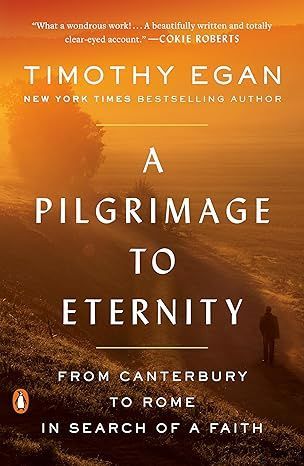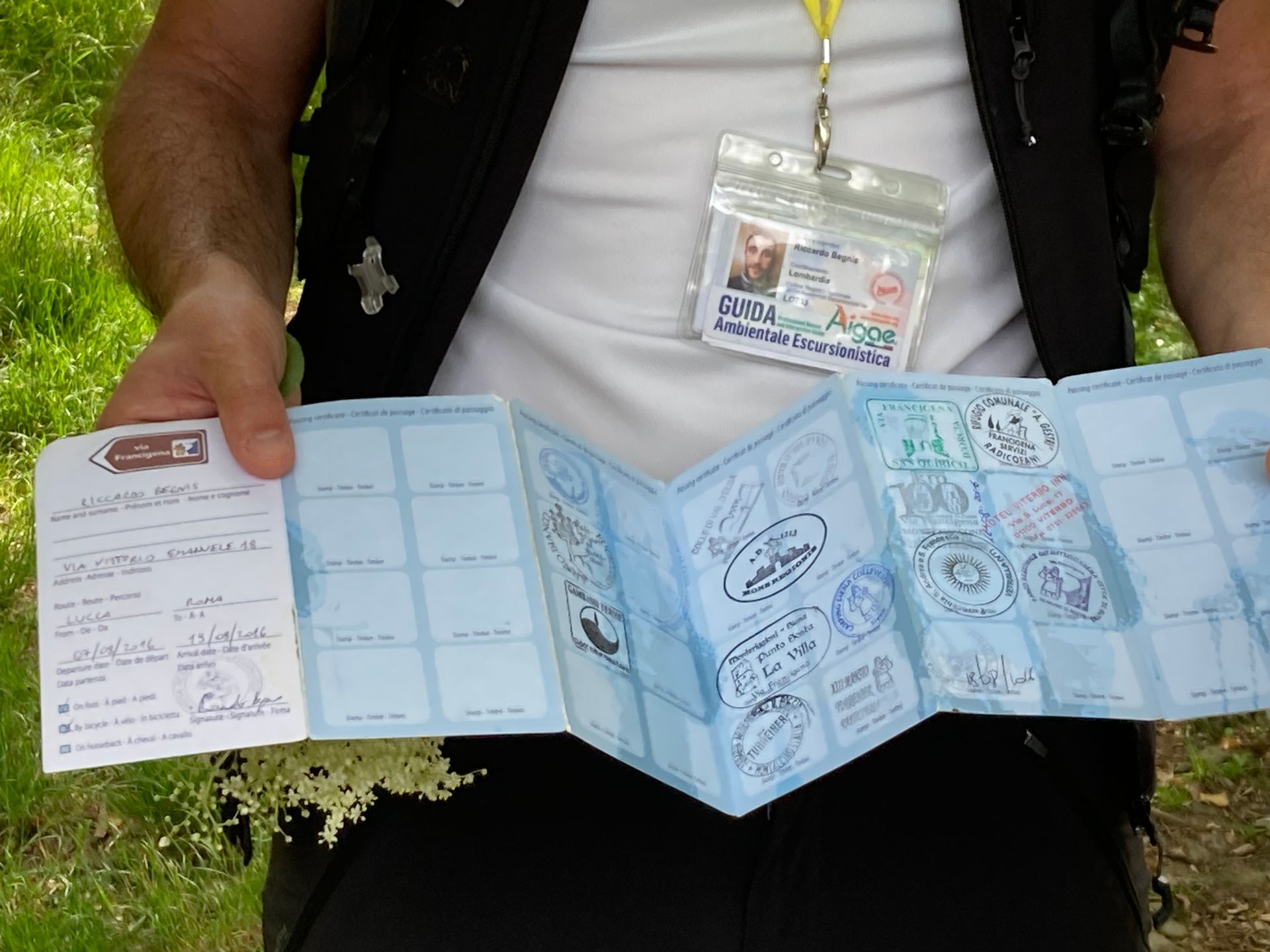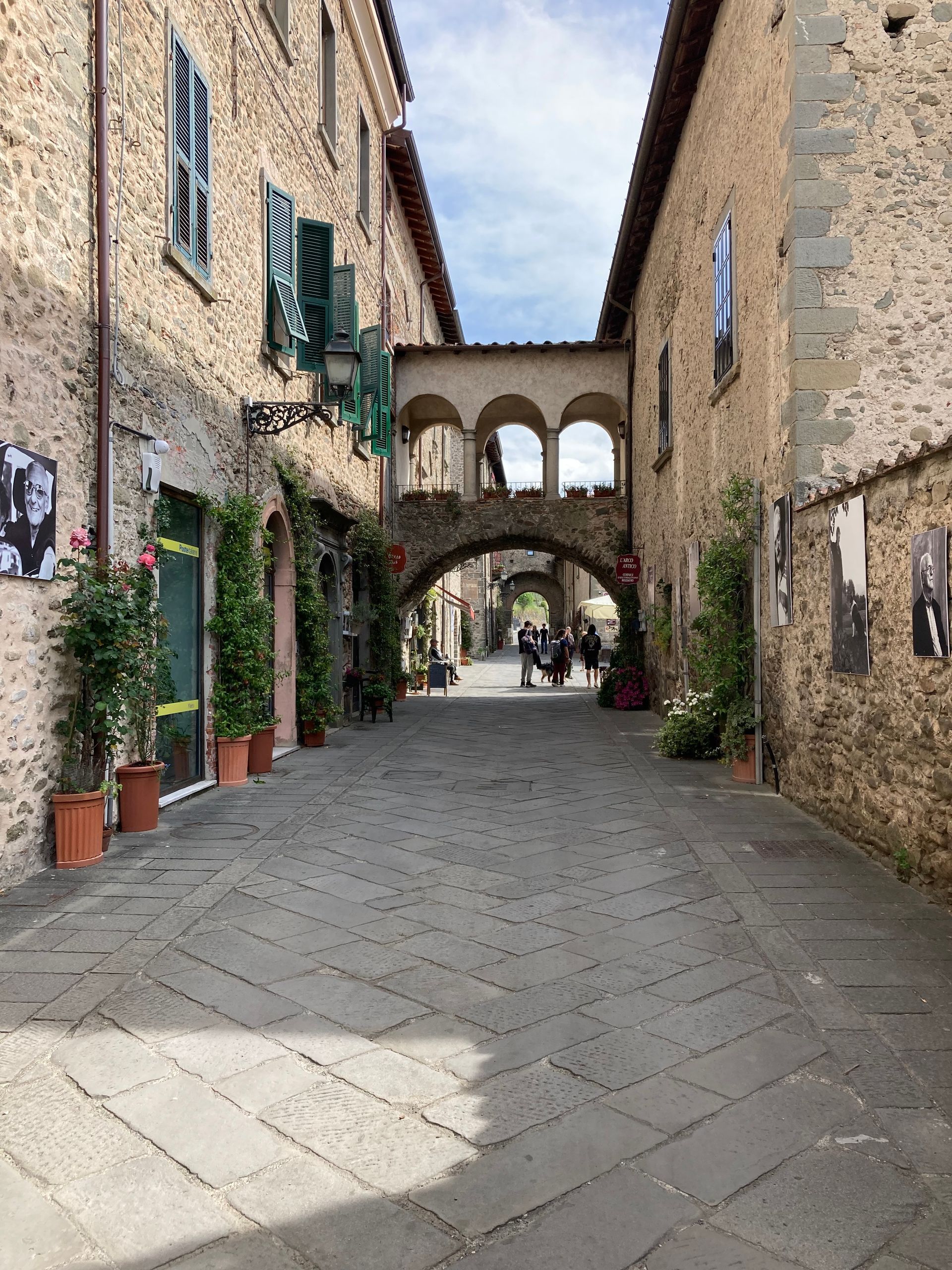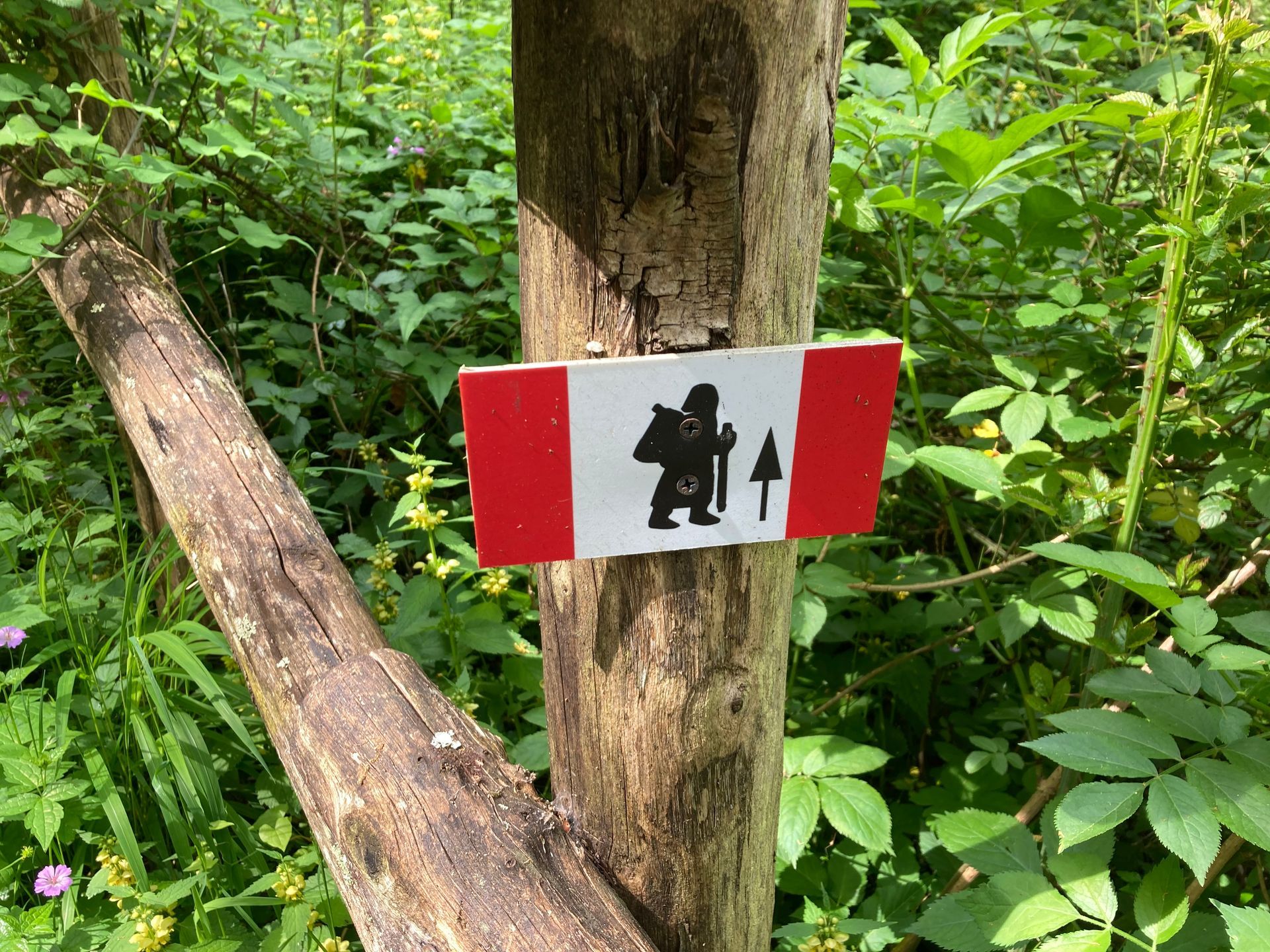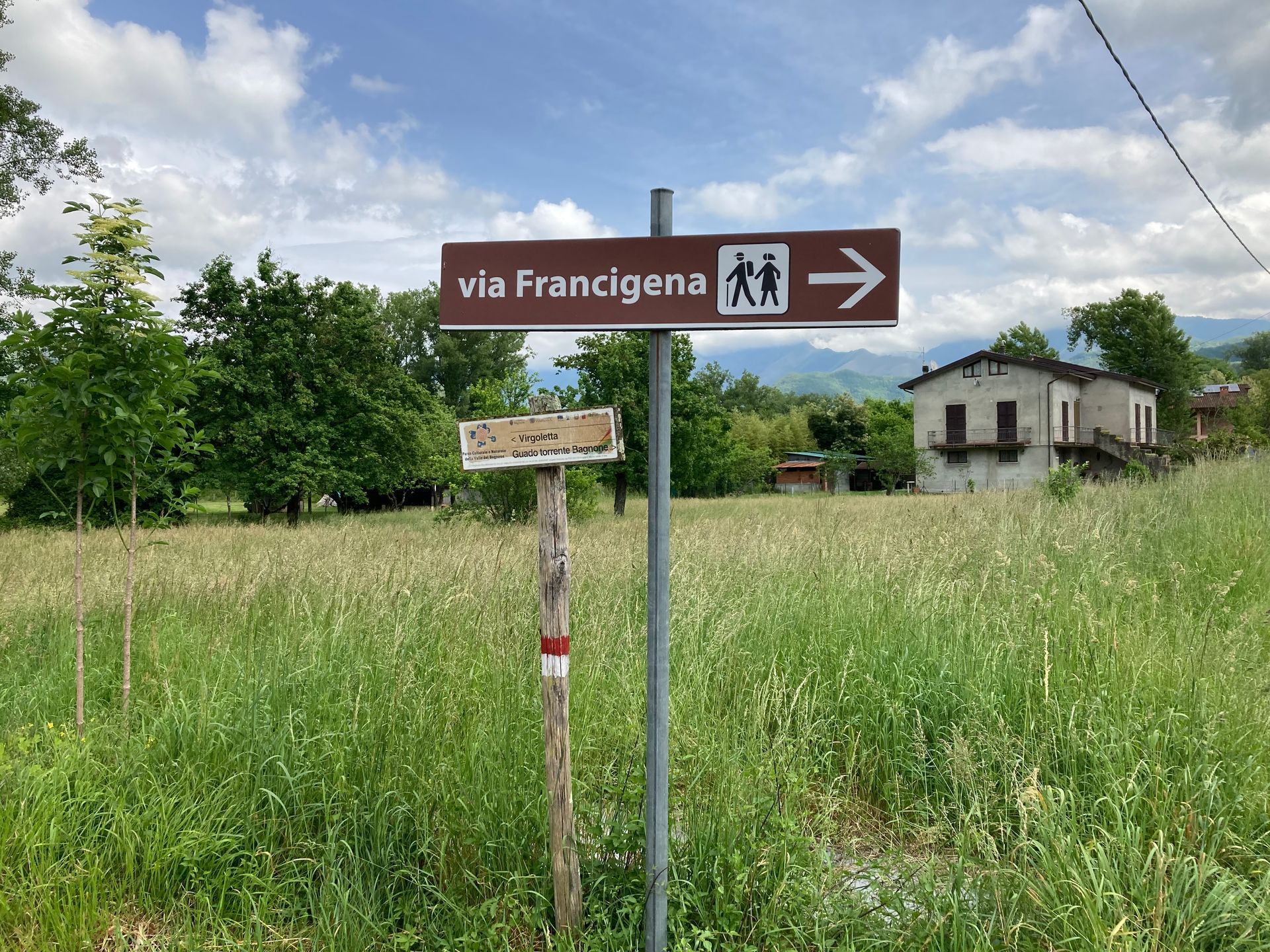Keep Calm and Read On: Saints & Sinners
By Wayne Limberg
Following the death of his mother, Timothy Egan decided to take a long walk. His choice was the 1300 mile Via Francigena (VF), which runs from Canterbury to Rome. The result was his 2019 book “Pilgrimage to Eternity.” As a self-described “lapsed but listening” Catholic, he felt the need for “a stiff shot of no-bullshit spirituality.” He was not alone. An estimated 200 million people a year embark on some type of spiritual journey, be it the AT or the centuries old Camino de Santiago. Forty thousand walk all or part of the VF annually, seeking “to learn how to waste time” and in Egan’s case, find answers to questions that have haunted mankind since at least the time of Job. Getting away from it all is a major draw. Indeed, McKaye saw it as the major goal of the AT. This retreat from civilization can bring psychological and some would say even spiritual returns.
Egan’s name may be a familiar ring. He is a former NYTimes op-ed columnist and award-winning author of ten books. His previously reviewed “The Big Burn” dealt with the Great Fire of 1910 in Montana and Idaho that gave a boost to the new US Forest Service and, alas, its policy of fire suppression.
The first VF pilgrimage is traditionally credited to Archbishop Siguric, who made the trek around 990 AD to receive official papal recognition of his new position as archbishop of Canterbury. He kept a journal of his return journey, which averaged 12 miles a day. Unfortunately, it is little more than a logbook with few details. Records of a “Lombard Way” or “Frankish Route” from northern Europe to Rome predate Siguric’s, but he added Canterbury. Later pilgrims continued their travels from Rome to Appulia in Italy’s boot heel to book passage to the Holy Land. The VF was never a single, defined road; it used several routes, depending on the seasons and political situations in the various regions it crossed. At its peak in the Middle Ages, the VF saw upwards of 2 million pilgrims make the trek.
Egan’s decision to walk the VF was only partly in response to the death of his mother, a devout progressive Catholic, who was shaken by the sex scandals that rocked the Catholic Church and had even touched the Egan family. In addition, Egan’s sister-in-law was undergoing treatment for cancer. At the same time, he felt that secularization and declining congregants along with the sex scandals posed an existential challenge to the Church and Christianity in general that threatened to reduce the shrines and chapels that dotted the VF to quaint curiosities akin to Stonehenge. Like Siguric, Egan started in Canterbury, picking up his official VF passport that he dutifully had stamped at shrines along the Via to earn his pilgrim’s certificate in Rome. As it turned out, he did not walk the entire Via. Weather and injuries forced him to take trains, bum rides and rent a Fiat for a number of miles. He justified this by musing that Siguric surely did not pass up an offered ride.
Egan clearly read deeply and widely in preparation for his trip. “A Pilgrimage to Eternity” is packed with relevant quotes from Augustine to Pope Francis and a cast of characters that include Thomas Becket, Assisi, Erasmus, Luther, Calvin, and Diderot. Assisi and Erasmus are clear favorites. Luther gets a passing grade despite his antisemitism but there is no saving Calvin. As he recounts his various stops on the Via he offers thoughtful insights into local culture as well church and European history in general.
“A Pilgrimage to Eternity,” however, is no pedantic slog. Egan’s enthusiasm for his topic is catching in no small part because of his sense of irony and humor—often in combination. When he is hiking through the WWI Somme battlefield, he observes that over one million soldiers died fighting for purportedly Christian nations. On the lighter side, Egan tells of meeting a woman in Italy who says she no longer considers herself a practicing Catholic. When she learns Egan hopes to see the pope in Rome, however, she asks Egan to ask the Holy Father to pray for her. He also has a chuckle when he discovers at the very beginning of his pilgrimage that Canterbury Cathedral does not sell copies of Chaucer’s “Canterbury Tales.” Too racy.
Throughout “A Pilgrimage to Eternity” Egan manages to bring a human dimension to the various places, events and characters—living and dead—he encounters. A prime example is when he visits the stops at the Moet & Chandon tasting rooms in Epernay and finds swarms of tourists. Pilgrims in the Middle Ages visited the church in Epernay because it once held the remains of Helena, the mother of Constantine, but now they come to see the final resting place for Dom Perignon, “the father of champagne.” Like Egan, Dom Perignon was educated by Jesuits but became a Benedictine monk at 18 and spent the next half century perfecting “methode champenoise.” Like the monks who created illuminated manuscripts, Egan sees Dom Perignon’s “doing something good and well and dutifully until it was close to perfect” as a form of prayer.
In the end, Egan makes it to Rome. Many of his questions go unanswered but like many an AT hiker he concludes that each must hike his or her own hike, or as St. Labre, the patron saint of the homeless, once said, “There is no way. The way is the way.”
Do you have a favorite read? Send it along to
wplimberg@aol.com. Meanwhile, keep reading. See you on the trail.

